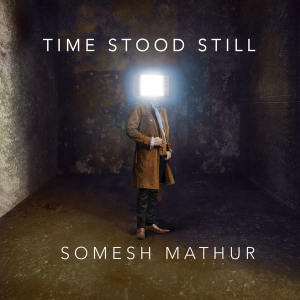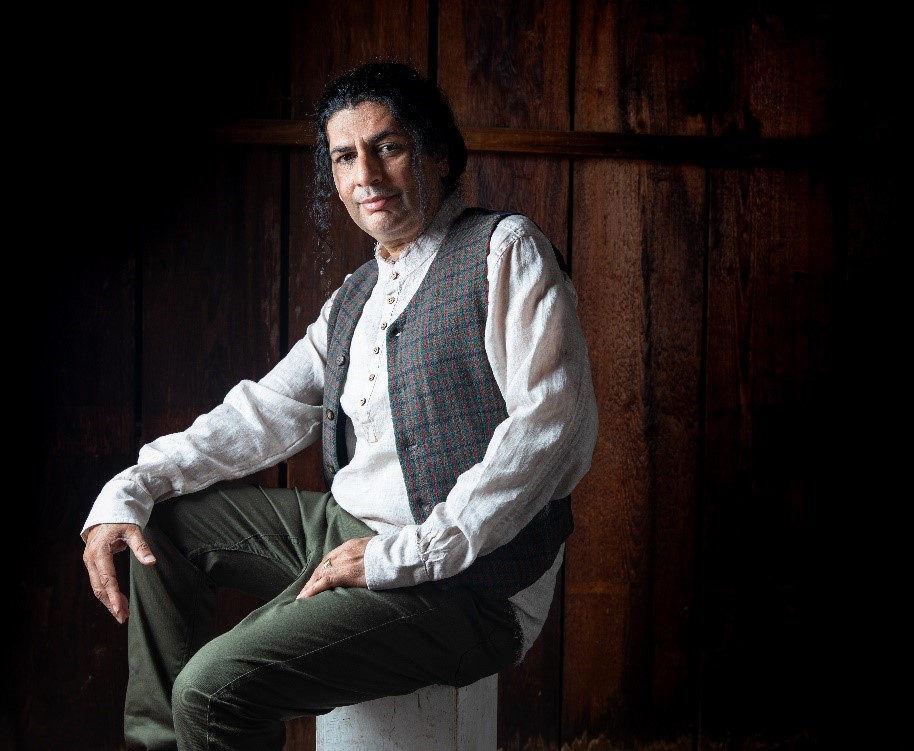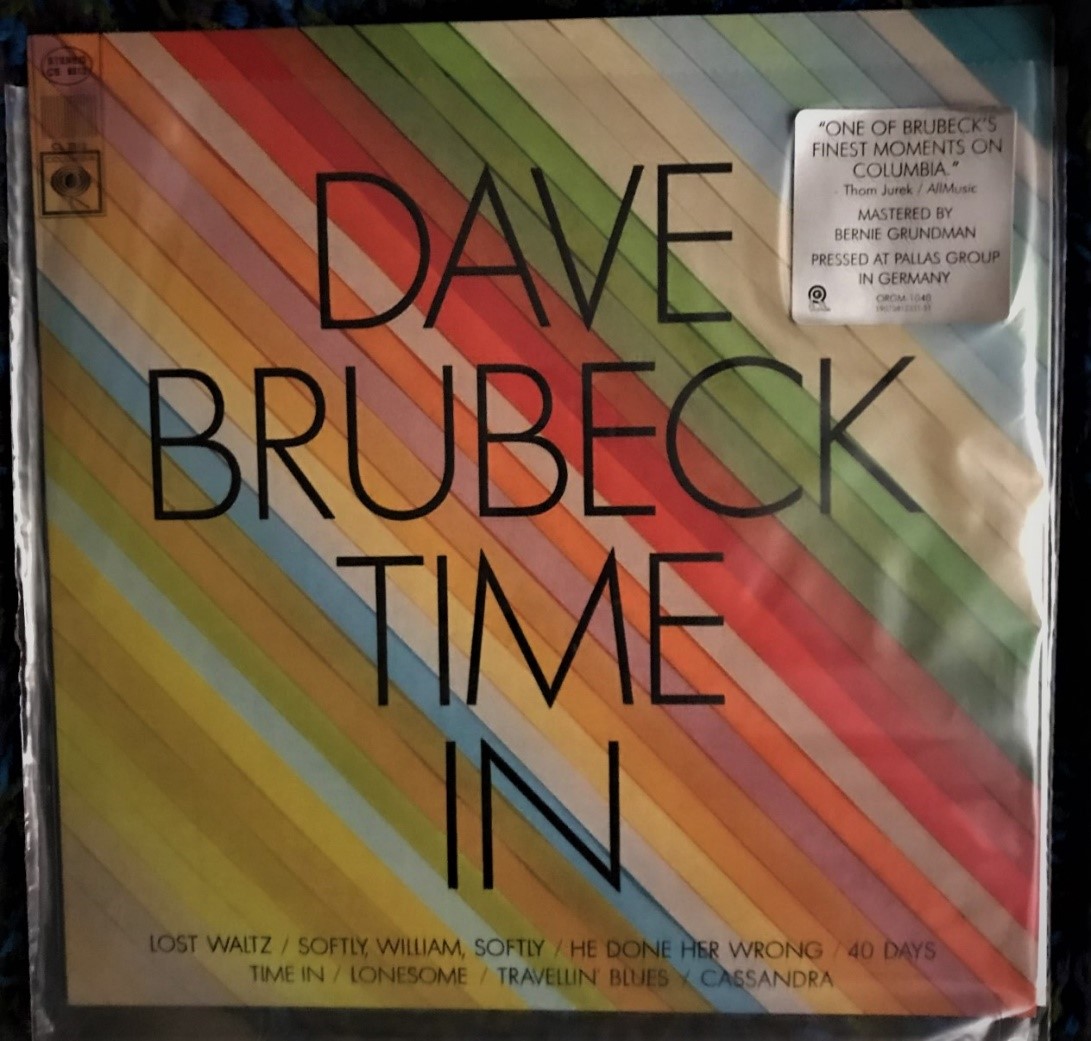Sweetbeats Productions, Digital download available at Apple Music and Google Music $8.99
I know I've raved about recordings in reviews, even in the last year, where I remarked that I put it in my CD player or an LP on my turntable and I didn't take it out/off for a very long time. That's a nice way of saying I really enjoyed it, a sentiment that goes back to my youth where I'd stick a cassette in my car and drive around playing it for months at a time, or at least until one of my friends asked, "Do you have anything else you can play, dude?"
Does it really happen? Do I really get that obsessed anymore? I think the last time was back in 2010, when I had a particularly long commute and I wound up alternating between Janelle Monae's The ArchAndroid and The Black Keys' Brothers for an uncomfortably long time. But these days I have a huge music collection, and several ways to enjoy it. I usually don't get endlessly stuck on things anymore—at least until a few days ago.
I had to drive from Rochester, New York to Alexandria, Virginia, and back—all in one day, and in the snow. I brought a small stack of CDs with me, and I wound up playing just one of them over and over for most of the trip. That CD was Somesh Mathur's Time Stood Still. It took a couple of plays all the way through before I had it all figured out in my head since this is such an original disc—it's sort of psychedelic rock from India, with small dollops of fusion and funk and even 70s prog rock. Long, fuzzy electric guitar solos and monster rock drumming are mixed together with more traditional instruments such as sitar and tabla, and Mathur's lyrics, sung in both Indian and English, are of the spiritual variety and generally concern enlightenment and remembering lessons of the past.
Did I mention the monster drummer? His name is Gergo Borlai, and he's such a strong presence that I started to think Mathur was the drummer. Borlai is the same type of drummer who keeps me connected to my love of classic rock. His cymbal work is brilliantly unexpected, his instinct for syncopation is preternatural and his fills are simply insane, the kind of fills where you start to memorize them and then tell others "Shh! Here it comes!" On the first track, "Nectar," his performance is overwhelming, a slow burn where the fills get more and more mind-boggling as the song progresses.
"Chop Suey" from System of a Down used to be my wake-up song, the one I'd listen to first thing in the morning so I could confront a busy day. Now it's "Nectar." I love this Gergo Borlai guy, whoever he is. But this is not a Gergo Borlai album. It's a Somesh Mathur album, and it features Scott Kinsey who also produces, plays keyboards and bass and even co-writes much of the songs.
Mathur's creativity is off-the-charts, however, dancing around so many ideas and sounds, much like Japanese pop star Haruomi Hosono. He's full of gentle humor, such as when he employs a chorus, the type of pleasant voices you hear during the squarest of TV commercial jingles, to croon such messages as the Frank Ocean line "When you're happy, you enjoy the music, when you're sad, you understand the lyrics." On "Sweet Beats," an infectious piece of cotton candy, the same backing vocalists chant "You've got the smile, you've got the style…no kiss, no touch, it's been a while." During those last handful of words, the collective tone of those singers turns quietly sad to the point of being almost subversive. Listen casually, and you'll miss the irony and think it's corny. It's not.
Nearly every song on Time Stood Still exists in its own unique world and presents a different adventure for the listener. "And Time Stood Still" is an easygoing mid-tempo rocker that shifts gears toward the end with an epic guitar solo from Josh Smith that's straight out of David Gilmour's songbook. "What's With the World" has the soul of a folk song from the 60s that questions mankind's relationship with the planet: "What's with the world? Is it in a good place? What's with us? The human race?" Both "My Beloved" and "Trinity" borrow heavily from traditional Indian music and are exquisitely hypnotic.
There isn't a bad track on the album, nor a mediocre idea. It's certainly silly at times, anachronistically so, but it's always executed in a manner that's evocative. Perhaps this is due to Mathur's involvement with Bollywood as a soundtrack composer—if you understand and enjoy the liveliness of Indian cinema, you'll probably go nuts for this album. Mathur is a bit of a Renaissance man back home—he's about to host his own TV show—so his mind is busy with ideas about being a Sufi, or loving all types of music, of pushing his message of "LOVE, COMPASSION and SERVICE to the Supreme Sovereign."
Even if that sounds a bit flighty to you, you may still love this album for its unfettered audacity—or you might just revel in one of the most amazing album-long drum performances in recent memory. Now if you'll excuse me, I need my daily dose of "Nectar."
Photos by Jeffrey Moustache, styling by Ambika Sanjana









































